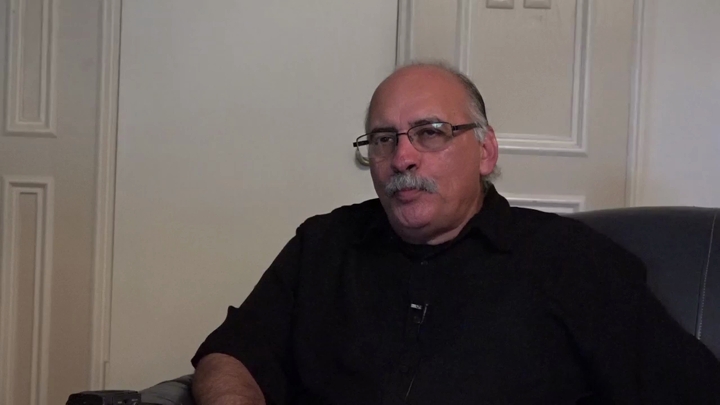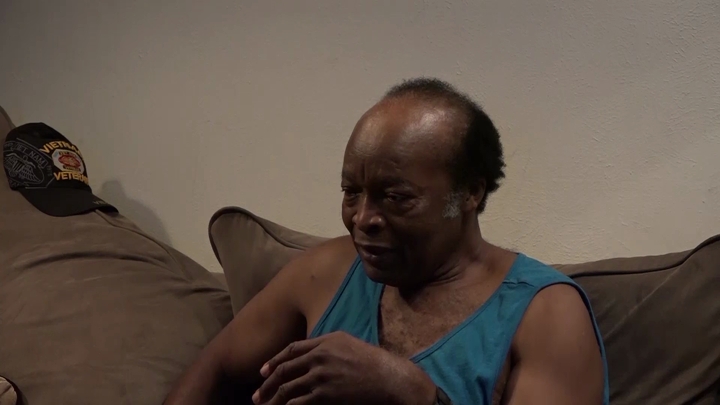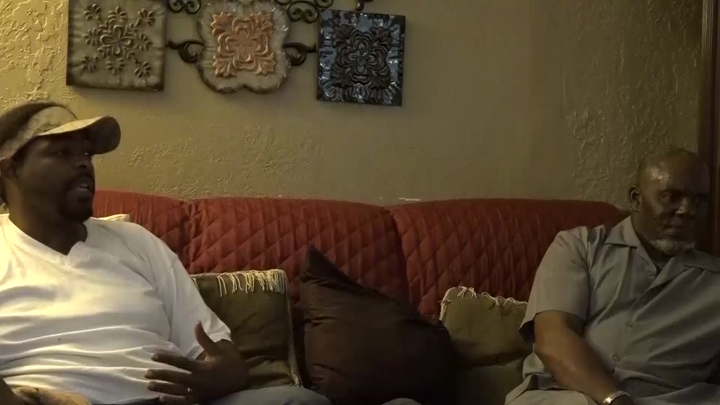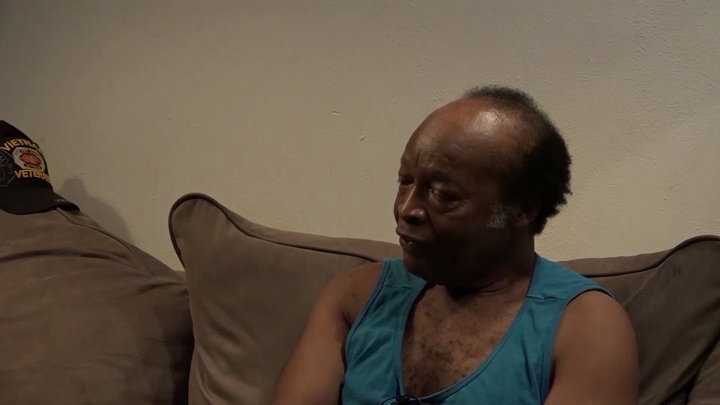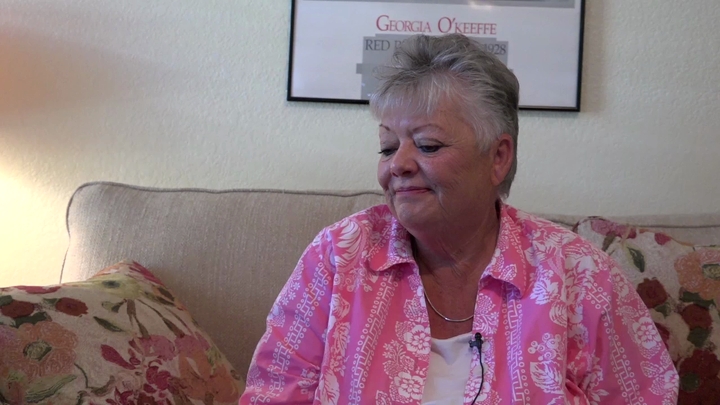Abdullah / Neighborhoods, Politics, and Voting
sign up or sign in to add/edit transcript
Interviewer: Since you grew up in Nacogdoches, live here now, what changes have you seen overall? Helena Abdullah: I tell you one change that I’ve seen that I kind of like. We have an influx of Hispanics here. Back when I was a kid, I only knew one or two Hispanics. I was told there were more here, but you didn’t see them that much. I’ve noticed that the black community and the Hispanic community have been mixing more and they’re working together more, and I like that. Interviewer: Have you seen any political working together in politics? Helena Abdullah: There’s a lady, her name is Cardova. She works at SFA in the social work department. She and her husband are pretty active out there and usually when you get to doing things, those are the two people I call. If I’m going to do something or try to get something going, I call her and her husband because they are very active. It’s good that we have them here. Interviewer: Have you seen any changes in political representation? Helena Abdullah: No. In fact, in the nineties, what they did was when the political machine got together and redistricted in our community, they split up some of our black votes. However, we are still able to maintain precinct two which is all-black, and we can get someone in an office. When they did that, when they redistricted some years back, a couple people tried to sue and get them change it back but that never happened? It was a political move. Interviewer: Explicitly trying to dilute the black vote? Helena Abdullah: They were trying to dilute the black vote, yeah. They were. A lot of blacks don’t vote and the multitude that’s coming out to vote, they want to dilute that. The thing is that if we had every black person that’s registered to vote to come out and vote no matter where they live, it would make a change in this community. You got a lot of lackadaisical people about the voting. They don’t realize that people died. People all over the country, black, white and Jews died so that we could have that vote and wouldn’t have to pay that poll tax anymore. People will not go out and vote. Interviewer: Do you think one of the reasons for that apathy could be the historic repression of the black population? Helena Abdullah: From my experience, a lot of the people that I talked to personally because I used to walk the street to get votes. A friend of my named Jenny Henson, she’s a Caucasian, she and I used to walk the streets in Redland, we used to go to ??? (2:55), we used to go to Pine Flat. All over the black community and all sides of the street and all over here. We went from household to household to household. Made sure people registered to vote. Get the elderly vote out. We crossed so many people who said my vote’s not going to count. Interviewer: So, distrust? Helena Abdullah: Just say their votes not going to count. They’re going to do what they want to anyway. Well not if you go vote! If you’ve got three hundred people in Nacogdoches that say my vote won’t count, if you add that to the four hundred that do vote, that’s seven hundred votes. That’s going to win an election here. Seven hundred votes will win an election given you got other people that will probably vote with some of the blacks. So, your vote does count. You can’t make them see that. Interviewer: Do you think it’s because there’s such a strong conservative sentiment in Nacogdoches and the county at large? Helena Abdullah: I’m not sure if it’s hopelessness, helplessness, apathy. I’m not sure what it is. Interviewer: A combination of all of it? Helena Abdullah: A combination of all of it possibly because you can’t change some of the mindsets that are out there. No matter how you pose it to people. I talked to some young men when we were out walking the street getting people to vote and getting votes registered out on Burgess Hill and the guys all I’m not going to vote, it ain’t going to make no difference. Blah blah blah. I said, "Do you have a grandmother, a mother, a sister that’s on Social Security?" "Yeah." "Do either of them get food stamps or anything like that?" "Well, my mama does." I said, "Do you realize that if you don’t get out there and vote, the Republicans are going to eventually take all that away? They’re trying to privatize Social Security as we speak. They’re trying to take care of some of these social services that you and your grandmother—which you probably go eat at your grandmother’s house—they’re trying to cut all that stuff out. If you don’t go vote and show your support for what the programs are and who they’re helping, it’s going to be the same thing. You got to go out and vote." "Well I’m a felon." "Well. wait your time. You’ll be able to vote some time but encourage somebody else to go vote who can vote." Doesn’t happen. We’ve got so many young blacks, women and men, walking around Nacogdoches that could vote and don’t. That’s a sad scenario. That’s going to be another generation and their children that don’t vote. Interviewer: So, your activism kind of expands across beginning when you were nineteen and has continued? What is the biggest or most important thing you have learned over all these years? Helena Abdullah: That no matter where you were raised, where you were born, what you look like, there’s a commonality someplace. If you just talk long enough, you’ll get to it. We have something in common. Find it and when we find it, let’s work together and we can change other things. Find that commonality. We’re not so different. I got to eat. You got to eat. I like to wear clothes. You like to wear clothes. I like to sleep in a house. You like to sleep in a house. So, the difference is what? Your eyes my slant and mine may be oval. I may be dark, and you may be light. God created that. It’s not my doing, but of the things that matter, we got the same. Let’s do it. We can do it together. Interviewer: Kind of relatedly, what’s the most important thing that you would teach a young activist who’s starting to work in the community? Helena Abdullah: Patience. Respect the people that you’re talking to. Don’t think that because you have an idea in your head, you get dogmatic about it and get mad because someone is not wanting to change what they’re doing. You got to realize the baggage that people bring with them and you got to learn to get them to respect you and trust you enough to open that suitcase and let you see the baggage that’s in there. Once you can see where they’re coming from, you can work from there. Don’t be dogmatic. Respect where a person is coming from and what baggage they’re bringing to the situation. Perseverance and patience. Trust. Trust to the man upstairs more than anything. Interviewer: Any last words? Helena Abdullah: I’m happy as I can be that you guys are a lot younger than me, but y’all are doing this. I’m so thankful that our history is not going to be lost because at one time I thought it would be. I’m so thankful that you guys are stepping up to the plate and keeping this history alive because our children need to know it and our grandchildren need to know it. How else are you going to have diversity if you don’t realize we’re all one big family? We just look a little different. All of my brothers and sisters don’t look alike. We came from the same mother and father. We don’t always look alike. We don’t always dress alike. We don’t always eat alike. We don’t like the same things, but we are all one family. If we keep that in mind, we are in one family, there’s nothing we can’t do together.
| Interview | Interview with Helena Abdullah |
| Subjects | Housing › Neighborhoods |
| Race Relations | |
| Race Relations › Black-Brown Race Relations | |
| Electoral Politics | |
| Electoral Politics › Voter Registration | |
| Electoral Politics › Republican Party | |
| Student Activism | |
| Citizenship › Taxes › Poll Tax | |
| Tags | sign up or sign in to add/edit tags |
| Interview date | 2016-06-30 |
| Interview source | CRBB Summer 2016 |
| Interviewees | Abdullah, Helena |
| Interviewers | Howard, Jasmin |
| Locations | Nacogdoches, TX |
| Duration | 00:08:31 |
| Citation | "Neighborhoods, Politics, and Voting," from Helena Abdullah oral history interview with Jasmin Howard, June 30, 2016, Nacogdoches, TX, Civil Rights in Black and Brown Interview Database, https://crbb.tcu.edu/clips/2516/neighborhoods-politics-and-voting, accessed February 25, 2026 |


